What is in the industry's Budget Wishlist?
By MYBRANDBOOK
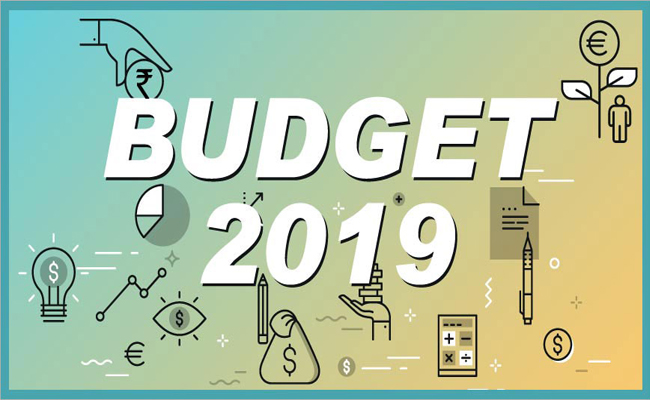
The Interim Budget is going to be presented on 1st February, 2019, which is also going to be the final one by the Narendra Modi government ahead of the general elections. Unlike most other budgets, this typically isn’t a high-octane affair; governments are discouraged from locking their successors into any new spending or taxes.
While the 2018 budget witnessed increased impetus from the government on promoting new technologies like AI, ML, IoT, the 2019 Budget is expected to bring more easy funding opportunities for start-up growth, given the interests shown by the Modi government in providing impetus to start-ups with initiatives like Start-Up India and Digital India. The Interim Budget is also wished to focus more on Digital India initiative in order to shape the IT infrastructure and increase adoption of technology to encourage digitization.
As far as the IoT ecosystem is concerned, the industry expects the government to give more focus on driving domestic innovations coupled with fiscal incentive schemes and liberalisation norms.
Below are a few vendors (irrespective of verticals) who put forward their expectations from the Budget before our readers -
Satya Prabhakar, CEO and Founder - Sulekha.com
“The move of the Govt. of India to increase the GST exemption limit to Rs. 40 L is a path-breaking pre-budget move. Given the small nature of MSMEs, the Govt’s move to also increase the annual turnover of the GST composition limit to Rs. 1.5 crores will also aid tremendous number of SMEs. Sulekha expects the Govt. to unveil several such steps in the upcoming Feb 1st budget including a possible provision of value-added services like marketing fees, advertising and other such promotions to be considered under a progressively lower GST tax structure. The Govt. can also consider increasing online accounting and online tax calculation procedures for thousands of MSMEs who will benefit from an easy compliance regime.”
Rahul Garg, CEO & Founder - Moglix
“We are looking forward to the upcoming budget, as it is expected to bring some significant changes in policy and tax system. In the past, making way for the GST, policy reforms & implementations around digitalisation etc. by the government led to rise in India’s ranking in the ease of doing business index. However, the recent policy amendment to the foreign direct investment (FDI) bill is ambiguous and can slow down the speed of start-ups in the country. The government should come up with regulations that simplifies our life as entrepreneurs and makes it easy to run businesses. The Government in the past has introduced several schemes targeted to encourage and boost the start-up ecosystem, however we still have a long way to go and a steady momentum needs to be maintained.”
Dr Rishi Bhatnagar, Chairman of the IET IoT Panel, The IET India & President – Aeris Communications
“At the telecom industry level, we would like the Government to publish an implementation plan/roadmap for the various strategies outlined in NDCP 2018 and Budget 2019/future budgets to allocate funds in-line with the plan for the implementation. This shall not only give a clear direction and push to us working towards achieving the 2022 strategic objectives and goals defined in NDCP but also send a strong message globally of a stable telecom regulatory and policy environment in India. Further we would like to see a clear national design for best coverage for India - independent of the individual telcos.
Specific to IoT and to encourage its faster growth in India our wish is to establish a data ecosystem, where all relevant partners can participate, to develop a structured plan, how to roll out data services based on IoT for the future.”
Rakesh Dugar, CMD - Mitashi Edutainment
"As the country heads towards the general elections, we expect the government to favour expansionary economic policies that would give space to growth-boosting measures with the interim budget; some of them have already been announced like raising the GST limit and seat reservations in education and we can expect more announcements like personal and commercial tax concessions, interest free loans to farmers, job reservations and other policies favouring local businesses.
All these announcements will likely weigh down on the government’s finances, but with inflation low the government can afford to be less conservative and push ahead with a few crowd-pleasing measures without very adverse effects in the long run.
Mitashi believes that exponential growth is possible in the appliance and consumer electronics (ACE) industry given the low levels of penetration of electronics and appliances when compared to global averages. An environment with stable policies and incentives will help drive growth and can make India self-reliant and globally competitive."
Avneet Singh Marwah, Director and CEO of Super Plastronics Pvt. Ltd, a Kodak brand Licensee
“The Indian government has been very supportive to the TV manufacturing industry and the recent reduction in GST has proven to be a great example. In a move to promote domestic manufacturing, we are expecting FM to reduce customs duty on ‘open cell’ used in the manufacturing of LCD and LED television panels to 0 per cent from the current 5 per cent. As a lot of brands have started importing TVs from ASEAN countries under FTA; major brands have stopped manufacturing televisions in India. This has impacted the Make in India initiative to a larger extent, close to which 1 million TV units have already been imported this year under FTA.”
Sangram Singh, CEO - Freecharge
“In the near future, digital channels of engagement such as digital payments, money transfers, consumer lending will continue to grow. To strengthen this growth, we hope the budget can encourage the upgradation of digital infrastructure and digital literacy - especially in small towns and rural India, which will help drive financial inclusion through digitisation. Some of the recent initiatives such as UPI 2.0 and tokenisation provide a good opportunity for banks, e-wallets, and other players in the fintech sphere to promote digital adoption. The fintech players should continue to focus on innovation, adding smart offerings to provide relevant and personalized customer experiences and strengthening the digital payments ecosystem in the country.”
Alok Dubey, CFO - Acer India
"For the year 2019, we are optimistic that this year, the union budget will focus more on Digital India initiative in order to shape the IT infrastructure and increase adoption of technology to encourage digitization. Last year, the budget did not really see any major inclusions for the IT sector. We also, feel that slashing of corporate taxes will help the larger companies and help Indian entities to compete globally and attract more investment to the country. In addition to this, it would be great to see the budget focusing on lowering the personal income tax slabs, and tax saving schemes which would lead to higher disposable income and directly benefit the normal taxpayer.”
P Venkatesh, Director – Maveric Systems
“India is becoming a growing hub for home grown start-ups. This is across some vital industries like Health care, Logistics, Power and Finance. In order to encourage that, the following can be done:
Remove the Angel tax; if it cannot be abolished for whatever the reasons, bring down the tax to 10% from the current 30%; also clarify the valuation method to be applied in this which is free of ambiguity.
Provide tax credits for failed ventures at twice the investment; encouraging shift in investment to early stage ventures is a critical need at the moment and this would certainly enable a quick decision making on the venture and also provide relief for entrepreneurs who may have to hold the strain of the drained investment in a failed venture to recoup and probably re-try some other venture.
Channel a part of the Research and development spend of the government to this sector and thereby encouraging new start-ups.”
Vipul Singh, CEO and Co-founder, Aarav Unmanned Systems
“The government should have special attention on small scale manufacturing industry including start-ups which are making unique hardware products in India. Ministry of Civil Aviation has done a fantastic job by bring a very pragmatic drone regulation and has gone further to even put down a 10 year roadmap for the Industry. Since the drone Industry in India is very small and mostly run by very small start-ups, govt. should announce Special Drone VC fund, R&D grants, tax exemptions, export benefits and infrastructure development grants for start-ups and SMEs to help the domestic industry grow faster than the global counterparts and serve not only the domestic market but the global market.”
Rahul Agarwal, CEO and MD - Lenovo India
"This year’s budget should focus on strengthening long-term macroeconomic parameters rather than taking a populist route as it is the year of elections. There is also a need to start rationalizing the corporate tax slabs. Simultaneously, more efforts need to be made to push initiatives by the government such as Make in India. This can be done by strengthening existing manufacturing facilities so that capacity utilization increases. For example, PC manufacturers like Lenovo, Dell, HP, etc. are only utilizing 25-30% of their capacities. If it is expanded, it will create more jobs too.
Definite focus should also be laid on exports if we want to make India the next manufacturing hub while within the country there is need for genuine and significant outlay for smart cities and urban infrastructure. When it comes specifically to the PCSD segment, we expect tax breaks for parents when they buy a PC for the purpose of education .This should be used as an innovative solution to push PC penetration up from current levels of around 15%.”
Sumesh Menon, Co-Founder & CEO, Woo
“After the success of Start-up India scheme by Modi Government, start-up and technology sector has high expectations from budget 2019. Policy regulations like ease of compliance, allocation of more funds for training, research and skill development, tax exemptions for start-ups will allow entrepreneurs to devote their time, energy and resources to gain success and build upon more innovative ideas. This will in turn help create a more welcoming ecosystem for the industry players wherein our endeavour towards the economy will multiply several folds.”
Anurag Bhatia, CEO and Head of Investments - Minance
“Traditionally, the budget during an election year is an ‘interim budget’, with the real one is announced in June-July by the new government. The interim budget has no major policy changes or modifications.
Expectations from New Budget
Nothing prevents the government from declaring a full budget and this govt. might take advantage of that. Assuming they do so, here’s what we expect –
Its election year and financial prudence will take a back seat, the government has to prove to the people that it has their interest at heart and so the Budget is likely to be populist; with sops for farmers, the middle-class, and small businesses.
The income tax exemption could be raised to 4 lakhs and the 80C limit hiked to 2 lakhs. After the re-introduction of Long-Term Capital Gains Tax last year, this could appease the salaried middle-class.
Shibu Paul, Regional Sales Director-APAC, Array Networks
"From this year's budget we are expecting reduced duties on IT networking products. There should be a strong domestic manufacturing policy favouring global companies to invest more in India. The budget should reassess the preferential market access policy and ensure that honest tax paying citizens are given privilege and preference."
M A Mannan, Country Manager – SAARC, Corsair
"With the implementation of the GST, the industry has flourished a lot; there has been a complete full stop for grey channel market or grey imports. The government is committed to the growth of manufacturing sector and the strides made by 'Digital India', 'Make in India' initiatives. This evolving aspect of the IT industry brings in immense business opportunities, but requires a special attention for its optimal utilization. So, to further encourage the electronics manufacturers and take these initiatives to next level government should roll out new schemes and incentives.
Also, with the fast paced developments in the IT industry, changing consumer buying patterns, variable GST rates for the various sub-parts in consumer goods, the industry is going through a demand-supply-cost gap. Hence, to address these challenges, the current 18% GST bracket can be brought down to 4-8%, which will help the IT industry as well as the consumers."
Rajendra Chitale, CFO - Crayon Software Experts India
"With initiatives like 'Digital India', 'Make in India' and 'Personal Data Protection Bills', Government has certainly put India on a Digital Innovation fast track. With Budget 2019, we require government to create policy frameworks that incentivize big businesses to invest in manufacturing locally in India. Further, we would also expect the Government to remove the day-today hurdles and obstacles faced in implementation of these initiatives.
With the changes in technology - pure play software licenses are being replaced by a bundled package - Azure, Amazon web services, etc. (Together referred to as "Cloud Services"). However, the concept largely remains the same - Resellers are not making any changes to these bundled packages and the margins are also very low. Would urge the Government to come out with specific notification to extend the scope of the term "Software" as defined under NOTIFICATION No. 21/2012 [F. No. 142/10/2012-SO(TPL)] S. O. 1323(E), DATED 13-6-2012.”
Sonit Jain, CEO - GajShield Infotech
"We would like the budget this year to give a strong push to Make In India which may include larger tax exemption limit for employees working in companies which are manufacturing products locally in India. A strong push towards rural e-infrastructure with added emphasis on security compliance and data protection would be beneficial. Implementing zero GST set-off for companies using SaaS application hosted outside India will enforce companies to setup data centers in India thus boosting jobs as well as infrastructure. Incentives should be given for making digital payments for the additional transparency they provide. This year's budget should promote companies manufacturing IT products locally by giving them added advantage like tax exemption or incentive on IT exports."
Krishna Raj Sharma, Director & CEO - iValue InfoSolutions
"It's exciting times doing business in India, which clipped China recently as the fastest growing large economy in the world. It is also set to surpass UK and become the 4th largest in size during the year. Digital and Digital Transformation (DX) are the buzz word across the state and central government and corporate across size and vertical for some time now. Data has indeed become the most valuable IP for both government and corporate for targeted programs with higher impact, faster results and efficient growth.
Recent policy initiatives such as GSTN and IBC have enhanced confidence of investors and helped in increasing the ease of doing business. Projects like Digital India and Make in India have promoted manufacturing activities leading to employment creation. Software and Service continue to lead Indian IT focusing on emerging technologies such as Hybrid Cloud, Analytics, IoT, Mobility leveraging on social media. 100+ Smart city initiatives are expected to transform Indian cities with plenty of business opportunity across spectrum.”
Rajaram Vidyavar, Director-Commercial - NetRack Enclosures
"Budget 2018 elevated country as a hub for ease of doing business. Also, the recent announcement of new SOPS for MSME sector that involves less and easy steps to access credit will surely boost the Indian MSME sector.
The government is all set for Union Budget 2019 and there are lots of expectations from this session. We would like this budget to provide directions to key decisions expected to take place in IT and Manufacturing sectors. The industry is also anticipating revised schemes which will boost the 'Make in India' and 'Digital India' initiatives. Tax deductions on locally manufactured products and special packages for Indian manufacturing hubs will surely achieve zero imports by 2020, hence boosting Indian economy."
Prashanth G J, CEO -TechnoBind
"I have many expectations from this budget and at the top of it is the Easy Availability of credit, especially to the MSMEs. The last 18 months have been tough with the banks tightening their lines and now in the last 6 months the NBFC scene has compounded the issue. MSMEs want easy availability of credit to sustain and grow their operations.
The other expectation would be that the government would use the budget as a financial tool to boost the Digital India efforts and drive the adoption of Digitization right up to the SME. This will have a huge effect on the economy by not only increasing productivity but giving businesses a step forward to competing in today's modern business environment."
Rajarshi Bhattacharyya, Country Manager, SUSE
“I would wish the government to create policy frameworks that incentivize fresh investment and new business opportunities to transform India into a global manufacturing hub.
The Government's vision of Digital India has come alive and is slowly bridging the digital divide. With initiates like 'Digital India', 'Make in India' and 'Skill India', the government has certainly put India on a Digital Innovation fast track. By 2019 Budget, we would require government to create policy frameworks that incentivize investments from big players in manufacturing locally in India. Creating transparency in Governance and reducing regulatory compliances should be taken into the consideration.”
Robbin Shen, Managing Director, Dahua Technology India
“The run up to the presentation of India’s Union Budget is a very ideal occasion and time to review, reflect and reward the industries progress over the past one year and rectify the fault lines for further progress. The Indian Electronic Security Industry is one vital industry that needs the Union Government’s attention, initiatives and incentives to make the country safe and secure. As Dahua is here to contribute for the growth and development of India, let me spell out the Wish List of our industry -
Ease of doing business must be enhanced and procedures should be simplified. Compliance mechanism should be streamlined and approvals from not more than one or two authorities could become the norm.
Project implementation such as Smart City, Safe City, City Surveillance should be speeded up to avoid inordinate delay, cost and time overruns
Infrastructure improvement should be given a high priority by increasing funding.
Import duties should be reduced as it will help bridge technology gap. Reduction in corporate and individual taxes will enable more people to avail of security devices. Recently, GST rates have been slashed from 28 % to 18 % and below for a few security items. Rates for other security items should also been brought down.
R& D and Innovation must be encouraged by giving suitable incentives.
Mandatory instalment of security devices in all crowded public places to pre-vent crimes.
Safety norms and standards should be clearly defined, and all establishments should be audited for safety levels.
Awards for the cities with Best Security should be instituted as it can encourage competition and promote peace, progress and safety.”
Rajesh Ram Mishra, President – IESA
The draft electronics policy released by the Ministry of Electronics and IT sets an ambitious target of creating a USD400 billion electronics manufacturing industry by 2025, primarily focusing on the consumer segment with mobile phone devices segment contributing to around 50% of the production. We are excited that NPE also aims at supporting “make for the world” initiative as over 54% of the mobile phones manufactured in India would be exported by 2025. However, Consumer segment will constitute less than 20% of the total ESDM market in India. IESA believes there is a big opportunity of design led manufacturing to make India a global hub in intelligent electronics. We would like to appeal to the government to address specific issues that will help promote a thriving ESDM ecosystem across all segments in the country -
Address industry concerns on disincentive for domestic manufacturing and products designed in India due to differential duty structure in multiple segments.
Unlike software products, R&D for electronic products and semiconductors require higher investments. As rightly captured in the draft NEP, R&D for electronic products may need roughly USD 10-15Million and R&D for Semiconductors (chips, ICs) requires USD 40-50 Million per product. Start-ups in Electronics and Semiconductor space primarily depend on Angel and self-funding as very few VCs in India are investing is ESDM companies. Angel tax and the current policy of getting the start-up valuation done by a merchant banker is hitting the ESDM start-ups very hard.
Electronics is key enabler in creating an ‘intelligent’ economy – whether its smart homes, smart transportation, smart cities, smart manufacturing, smart governance, smart health care, smart communication and smart industry etc. We want the government to provide support to create 50 Intelligent Electronics Incubators collaborating with industry in various technology and industry verticals in Mission Mode, similar to Atal Innovation Mission.
For scaling small and mid-size companies in ESDM space to become large MNCs like Huawei & ZTE government must ensure domestic market access through stricter implementation of PMA, global market access through linkage of Indian government grant to developing countries with export from Indian ESDM companies and reduction in half the cost of financing for both R&D and manufacturing.
Building secured digital infrastructure in India is critical considering the vulnerabilities arising due to geo political uncertainties. Hence, govt should insist on “all-in India” products for strategic needs where every component used is designed and manufactured in India, a practice being followed in China today. Telecom Service Providers who are one of the biggest consumer of electronics products & systems and today provide the back bone of our voice and data networks should be encouraged through policy to use “all-in India” products.
Despite MSIP, large manufacturing set up in semiconductor and electronics have still not come up. The new incentive scheme could focus on guaranteed market for certain percentage of production from these large ESDM manufacturers instead of purely focussing on early subsidy, similar to BOT model that is working well in construction of road, airports etc in the country.
Ashwin Bhandari, CEO - iVOOMi
"Firstly, we appreciate the GoI for managing and maintaining the PMP. We are looking forward to provisions by the GoI in the budget which will be in the interest of making Indian manufacturing facilities at par with global giants, which will tremendously benefit exports and increase exports from India manifold. Increase in exports will lead to India becoming a manufacturing hub of the world.
Also hoping to see reservation of budgets to provide strategically located infrastructure support to small component manufacturers. This will further support the Make in India initiative, taking manufacturing units to the next level in terms of capabilities and growth. Releasing special funds for this will help Indian factories/manufacturing plants become the global manufacturers and India could be the manufacturing hub of the world in the next 3 years.
It would be great to see the budget-making provisions for incentives for contract manufacturers (LCD panels, battery cells, mouldings, and the likes of it), to achieve comprehensive growth at a large scale, supporting the Indian factories in reaching the next level and becoming a global manufacturing hub."
Aprameya Radhakrishna CEO and Co-founder - Vokal & Mayank Bidawataka, Co-founder - Vokal
“Start-ups are looking forward to abolish the so called ‘angel tax’ forever. It’s been a problem for both investors and start-ups. I am both a start-up founder as well as an investor in start-ups. For most angels, investing is a way of paying it forward. However, you don’t want the hassle of going through some scrutiny just for investing a small amount in a start-up. As a start-up, we don’t expect the government to tax us for having raised angel investment. Start-ups are employment generators. Start-up investments need to be incentivized.
On the one side the government is trying to protect local businesses when it doesn’t allow FDI in multi brand retail but on the other hand they are discouraging local businesses and investors by levying start-up / angel tax.
We hope the government removes the start-up tax in all forms from the budget. There should be no ambiguity / subjectivity when looking at funds raised by start-ups. The onus is on the government to find ways to separate the few questionable transactions from the thousands of genuine start-ups.”
Vikram Chari, Founder and CEO -- SmartOwner Services
"The GST sought to solve the inefficiencies of multiple taxes like VAT, ST, Octroi, Stamp Duty, Registration charges, thereby reducing prices and boosting demand. Unfortunately, this streamlining has not been done in a carefully thought out manner across the project-stages and sectors - causing additional market inefficiencies in the two largest sectors: Residential and Commercial.
a. Residential real estate prices on projects tend to follow a straight line, as the project advances through its construction phases and risk for investors or buyers decreases. With the GST levied on under-construction projects, there is an artificial decline in demand right before the Completion certificate not driven by market forces, but instead by the 12% GST that will no longer be applicable after the CC. At a lucrative stage where the project risk is minimal, this 12% tax hurts all stakeholders equally. Builders face a shortage in funds and need to secure financing at a much higher cost of capital. This expense needs to be passed on to home buyers, increasing their prices.
b. Commercial real estate has been affected by the fact that GST paid on construction costs cannot be offset against the GST on sales. Coupled with volatile construction material inputs taxed at the highest GST bracket (for instance 28% on cement), and lack of clarity on land value abatement, there is a large increase in developer costs that will have an impact on sales prices. With the outlook for a commercial property being extremely bright, the only 2 things holding large investors back are risks due to inefficiencies in the value chain and uncertainty in policy, both of which the current GST regulations suffer from.
In conclusion, the GST was expected to reduce inefficiencies of various levels of rent-seeking in an already complex industry. Unfortunately, inconsistent treatment of input credit, total tax rates, and arbitrary hurdles have reduced the excitement for investors at a time where the government is trying to re-energize strategic infrastructure investments in the face of a NBFC-driven liquidity crunch."
CP Gurnani, MD & CEO - Tech Mahindra
“We need to sustain our global competitiveness and ensure continued support to the start-up ecosystem. We need to further improve the ease and cost of doing business in the country by enabling a feasible policy and tax framework. In Budget 2019, we hope to see more initiatives towards the training and skill development of our youth, thus, addressing the employability issues in crucial next generation technologies such as Artificial Intelligence, Blockchain, 5G, Machine Learning, and Cyber security. Additionally, continued thrust to the Digital India program is essential”.
Shivam Sinha, Founder and CEO - Indiassetz
“We are hoping that this interim budget will bring some relief to both the developers as well as buyers. Rationalisation of the taxes on real estate and streamlining of taxation norms will make it more attractive and incentivised for people to invest in this sector. We expect the budget to focus on facilitating smart city growth and infrastructure. Real estate holds immense potential and investment opportunities as it addresses the future challenges of the society and also goes a long way in boosting the socio - economic confidence and willingness to invest in the minds of the people.
We look forward to structural incentives, funding announcements in the upcoming budget and a convincing game plan to ensure that the allocated funds are utilized as specified, within a specified deadline. We expect the government to provide interest rate subvention for first home buyers and generate separate income tax exemption limit for EMIs on housing to make housing affordable for the middle class. We also expect the government to increase the home loan caps eligible for subsidy and abolish angel tax for Government recognized start-ups.”
Dr. Sanjay Gupta, Vice-Chancellor - World University of Design
“Given the current economic situation globally, it is time for the Asian economies particularly India and China to become front runners in progress. In order for us to keep maintain this growth momentum, continued impetus and allocations need to be given to the education sector. In order to improve the quality of education and keep up with the current technology trends, the government focus on encouraging existing & future faculty to take up research & doctoral studies is welcome. We expect to witness introduction of a government schemes in the higher education sector to provide benefit to the faculty opting for re-skilling, up-skilling, e-education and doctoral studies. The Government must also increase allocation towards the education sector and strengthen teacher training programs across the country to improve the overall quality and capacity of the education ecosystem. The Government should reconsider GST rates on higher education and make education loans cheaper and the term period bigger, also partially exempt GST on outsourced services in higher education from 18 percent to 5 percent, to help lower costs of educational institutions.”
Prashant Gupta, Executive Director - Sharda University
“While the upcoming Budget is crucial for all sectors, it is pivotal for the education sector. We expect to witness a higher allocation towards the education sector and provide useful and elementary education for all in the following budget. The Government must emphasize on education at all levels and rationalize taxes, including e-learning education programs and make them affordable for the masses. More government schemes for the education sector are expected to be introduced in order to provide the benefits to the faculty as well as the masses of the country. Rapid advancement in technology and business models are creating demand for reskilling of the workforce the Government should address this issue in the forthcoming budget. The Government should also reconsider GST rates on higher education and make education loan cheaper and the term period bigger, also partially exempt GST on outsourced services in higher education from 18 per cent to 5 per cent, to create low-cost educational institutions that offer services at all levels -- primary, secondary and higher education.”
Siddharth Angrish, Founder, Jiyyo.com
"The Modi government has shown good interest in an upcoming start-up with initiatives like Start-Up India & Digital India. Start-up India has been quite a success. As an entrepreneur, I am expecting more and easy funding opportunities for start-up growth in India from the 2019 budget. Also, we hope that start up's are given more relaxation in GST and decreased regulatory interferences while applying for various tenders."
Siddharth Jain, Co-Founder, Vaahika
"The seamless highway is the need of the hour, to make logistics more efficient and profitable. It is understood that the government has been looking for solutions to reduce traffic snarls on highways; which has now become a major hassle for transporters. It is very much expected that the government should share a detailed outline or implementation vision on 'Toll-plaza free" seamless highways in this budget. It is also expected that the government will address the need of one nation - one permit in this budget; which has been suggested by the Logistics committee as well."
Akshay Singhal, Founder - Log 9 materials
"Electric mobility is extremely important for India however the adoption has been rather slow due to high cost of vehicles and challenges with daily use. This high cost is primarily driven by imports of technology and components for these vehicles. India needs to develop its own indigenous technologies which are better suited for the Indian ecosystem. Current Li-Ion technology for electric vehicles is a big strategic disadvantage for India as it does not have any reserves of Lithium or cobalt. Hence, today instead of being dependent on imports for petroleum, India is headed towards dependence on other nations for Lithium and cobalt in future. It is commendable that significant steps have been taken towards indigenous manufacturing of li-ion batteries in India, but it is vital from strategic standpoint to stress and allocate funds for indigenous development of energy technologies better suited for the Indian climate and ecosystem.”
K G. Prabhu, CFO – DIGISOL Systems
"Players in the IT Industry are excited about Union Budget 2019-20 as this will be the current government’s last budget before the general election. Expectations from IT sector is bit high as the ruling government has been focusing on making India a digitally empowered country since 2015 and has undertaken many initiatives in order to implement the vision. For the year 2019, we are bullish that the union budget will focus more on Smart cities and Digital India initiative in order to shape the IT infrastructure and increase adoption of technology to encourage digitization."
Sumeet Walia, Executive Vice President & Head – Sales, India & APAC - Tata Communications
“Increasingly, a priority for every business today is digitisation; the Government of India too has been cognisant in allocating budgets to make the Digital India mission a reality. With increasing digital penetration, security has become a growing concern as well and hence needs to be addressed in the upcoming budget. To that end, a robust cyber security policy framework will greatly support businesses to move in the right direction. Another subject that needs to be addressed, is the lack of appropriate skills to match the rapidly evolving pace of digital innovation. There is a pressing need to increase awareness and access to training to bridge the professional skills gap. The government needs to make significant investments in this direction.”


Legal Battle Over IT Act Intensifies Amid Musk’s India Plans
The outcome of the legal dispute between X Corp and the Indian government c...

Wipro inks 10-year deal with Phoenix Group's ReAssure UK worth
The agreement, executed through Wipro and its 100% subsidiary,...

Centre announces that DPDP Rules nearing Finalisation by April
The government seeks to refine the rules for robust data protection, ensuri...

Home Ministry cracks down on PoS agents in digital arrest scam
Digital arrest scams are a growing cybercrime where victims are coerced or ...


ICONS OF INDIA : RITESH AGARWAL
Ritesh Agarwal is an Indian billionaire entrepreneur and the founder a...
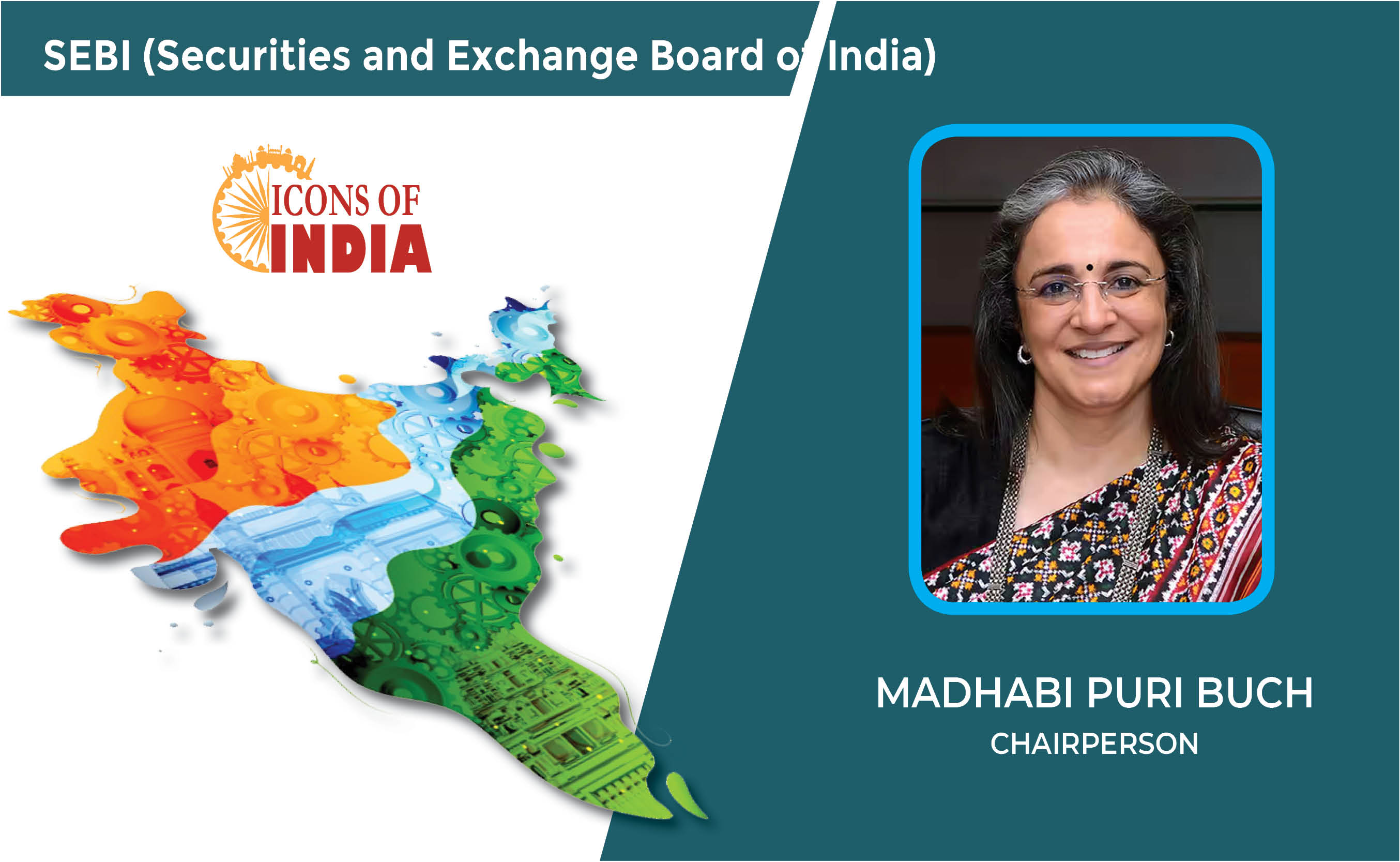
Icons Of India : MADHABI PURI BUCH
Madhabi Puri Buch is the first-female chairperson of India’s markets...
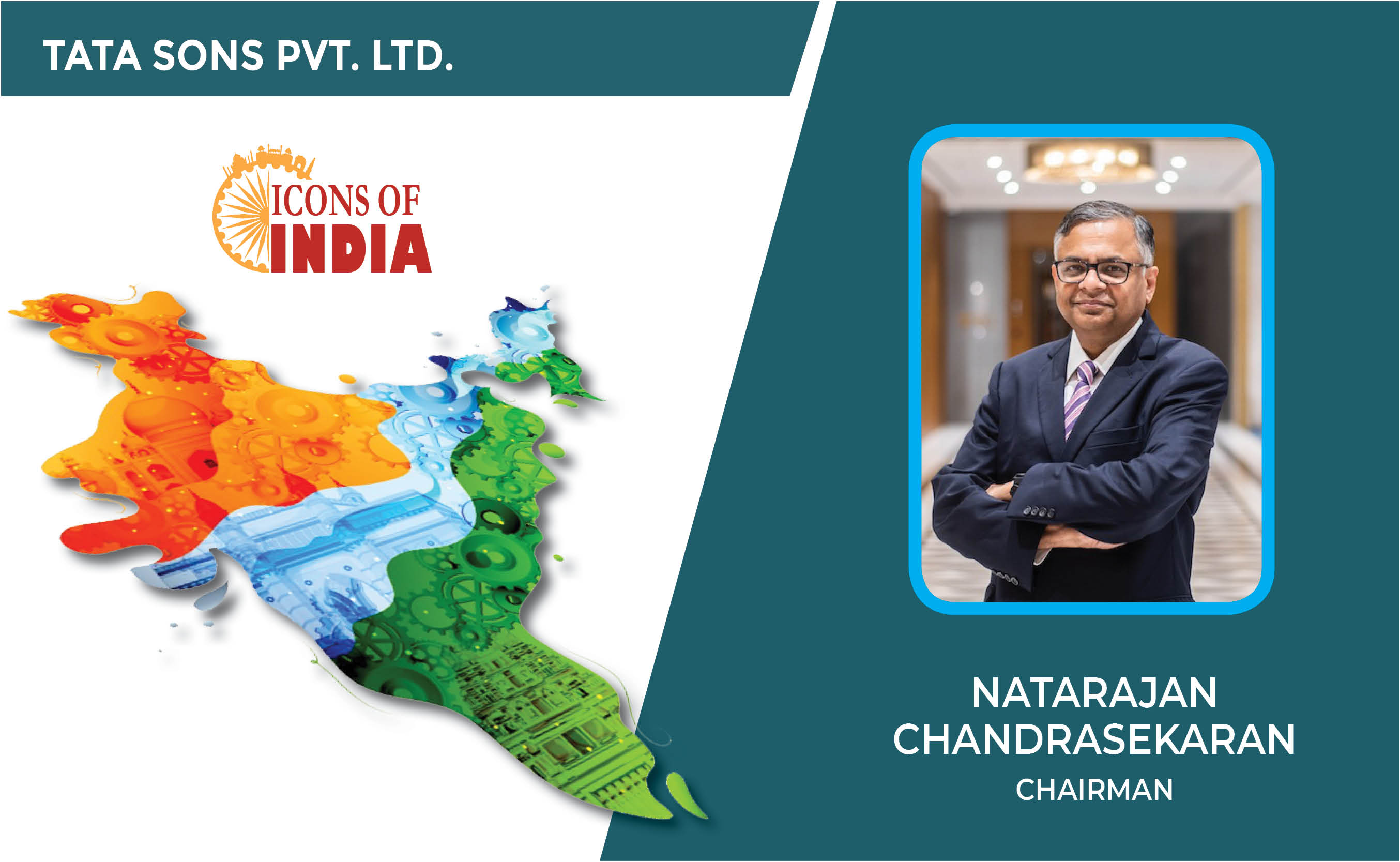
Icons Of India : NATARAJAN CHANDRASEKARAN
Natarajan Chandrasekaran (Chandra) is the Chairman of Tata Sons, the h...

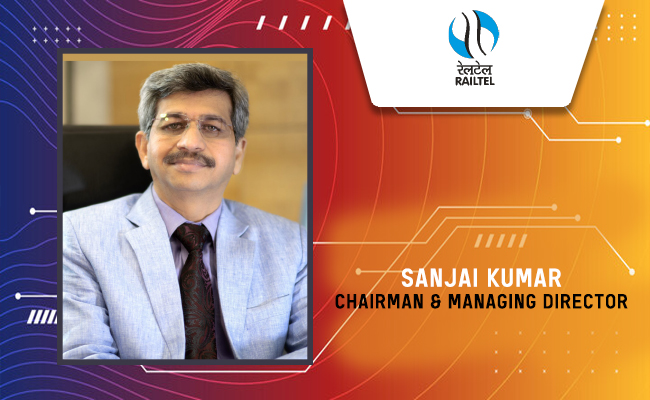
RailTel Corporation of India Limited
RailTel is a leading telecommunications infrastructure provider in Ind...
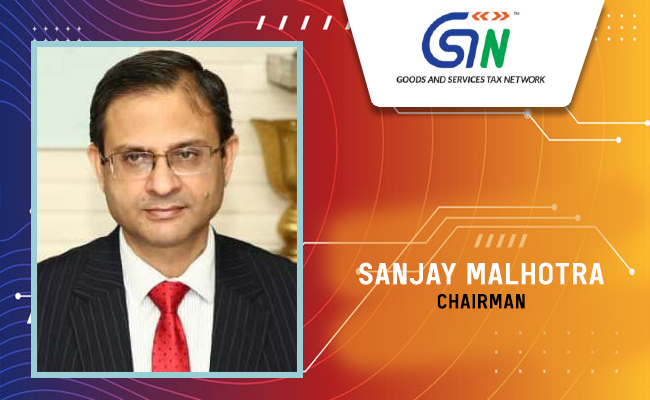
GSTN - Goods and Services Tax Network
GSTN provides shared IT infrastructure and service to both central and...
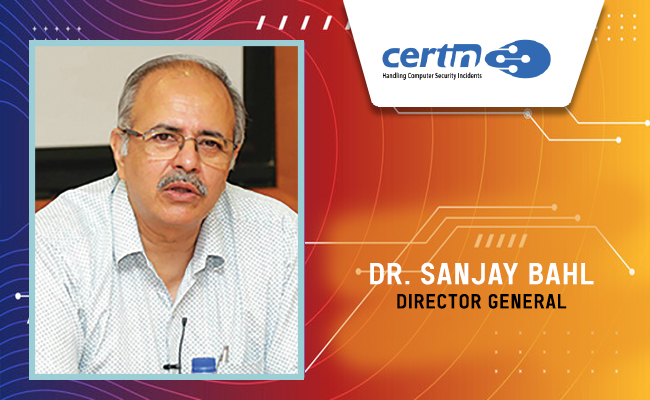
CERT-IN - Indian Computer Emergency Response Team
CERT-In is a national nodal agency for responding to computer security...


Indian Tech Talent Excelling The Tech World - Vinod Dham, Founder & Executive Managing Partner, IndoUS Venture Partners
Vinod Dham, known as the “Father of the Pentium Chip,” has left an...

Indian Tech Talent Excelling The Tech World - Lal Karsanbhai, President & CEO, Emerson
Lal Karsanbhai, President and CEO of Emerson, assumed the leadership i...

Indian Tech Talent Excelling The Tech World - ARVIND KRISHNA, CEO – IBM
Arvind Krishna, an Indian-American business executive, serves as the C...
 of images belongs to the respective copyright holders
of images belongs to the respective copyright holders